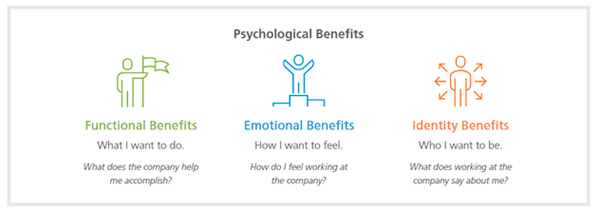Research-Backed Insights on How to Engage - and Keep - Talent in Today's Labor Market
Months into a collision of inflation-related price increases, employee turnover and a labor shortage, employers in the United States seem generally united in their response: increase wages and benefits. In fact, recent research from ADP and BLS data as of March 2022, all industries have experienced wage growth and, in total, wages and benefits increased 4% in 2021 — the biggest increase in over 20 years.
And while employees have been appreciative of these increases, employers continue to struggle to retain existing talent and roughly one in three organizations report they are feeling pressure to continue to up salary and benefit spend in 2022. In the wake of this struggle, countless organizational leaders are asking an important question: what will it take to keep employees engaged and loyal long-term?
What Our Research Uncovered About Engaging and Retaining Employees
In 2018, ITA Group, a West Des Moines-based engagement agency, asked ourselves a similar question. Market conditions were different then; it was the age of perks like game rooms, casual dress codes and free food at the office vs. upping compensation at unprecedented levels. But the research we conducted led us to an important conclusion that remains just as relevant to the matter of talent retention today as it was then: to effectively retain talent, employers need to support an employees’ psychological needs.
Our research was completed in partnership with a team of social psychologists and analysts from Chadwick Martin Bailey (CMB), a subsidiary of ITA Group that specializes in understanding what motivates human behavior. Together, we uncovered what we have termed The Psychological Benefit Framework, an innovative approach that evaluates the needs that employees must have met if you want to keep them. What’s more, the research we completed validated that an employee is 3x more likely to be loyal, engaged employee advocates for their organization when their psychological benefit needs are met.

The Psychological Benefit Framework distills down what matters most to employees and, while compensation and benefits are certainly among those needs, we were surprised to learn that they were far from the most important of needs that workers have.
Rather, compensation and benefits fall within the category of Functional Benefits. In our model, Functional Benefits are evaluated through employee satisfaction with their overall compensation package, work/life balance policies, conveniences and perceived ability to achieve professional goals.
Functional Benefits are considered cost-of-entry needs for employees. What this means is that they must be competitive enough to attract talent but they are rarely the reason an employee ultimately stays — or leaves — an employer.
Rather, the most significant drivers of employee retention were found to be what we termed the Identity Benefits. This category explores how an employee feels about working for their employer. This includes evaluating how employees feel that the work they do and the association they have with their employer’s brand reflects upon them and what they value.
Factors like cultural clarity and appeal, interpersonal relationships, perceptions of senior leadership and the employee’s own feelings of self-esteem and sense of purpose and belonging deeply affect whether an employee feels that their identity-related needs are being met.
How the Pandemic Impacted What Matters to Employees
Since early 2020, our world has weathered many changes, including adjustments to the way work is done and what employees expect from employers in exchange for the work they do. Given the seismic impact of this world event, we felt it was time to re-visit our original research to uncover what the pandemic changed — and didn’t — about what matters to employees.
In our latest report, “Finding the Potential & the Possible in the Era of The Great Resignation,” we uncovered that:
-
The foundation of the Psychological Benefit Framework remained intact, including that the identity benefits are the most important driver of employee retention
- Overall, employees’ needs are being much more effectively met than they were in 2018. This is a testament to the phenomenal work being done by organizational leaders to overcome challenges and implement responsive, emotionally intelligent solutions to human capital needs.
- A company’s mission and value statements mean more than they ever have, but the authenticity of company's mission and values matters most in supporting employees’ need for sense of purpose and belonging.
- Perceptions of the initiatives that companies offer to support employee needs are improving but these initiatives — like recognition, incentives and company events — still have room to improve to be most effective.
Retaining Top Talent in 2022 and Beyond
In the months remaining in 2022 we are sure to see continued wage increases and the rollout of innovative benefit offerings. And while those elements of the employee value proposition (EVP) are important to workers, consider the broader needs that employees have and how your organization is helping to answer key questions they have such as:
-
Does the culture of my workplace reflect my own personal values?
- Am I proud to talk about where I work?
- Do I feel like I can be myself among my peers and leaders?
- Does the work I do matter to my peers, my leader, and to society?
These are inherently deeper, more introspective questions. But they’re questions that nearly all employees are asking themselves — and those responses are directing the way they feel about staying or leaving your organization.
Looking for tools to help grow your startup or small business? Visit the Small Business Resources Hub to find the information you need or sign up for Mentor Connection to build relationships with a trusted group of mentors.
Job opportunities and career resources are abundant in Greater Des Moines (DSM). Whether you're looking to find an internship, a job, develop professionally or grow as a student, we have the resources to help you thrive.